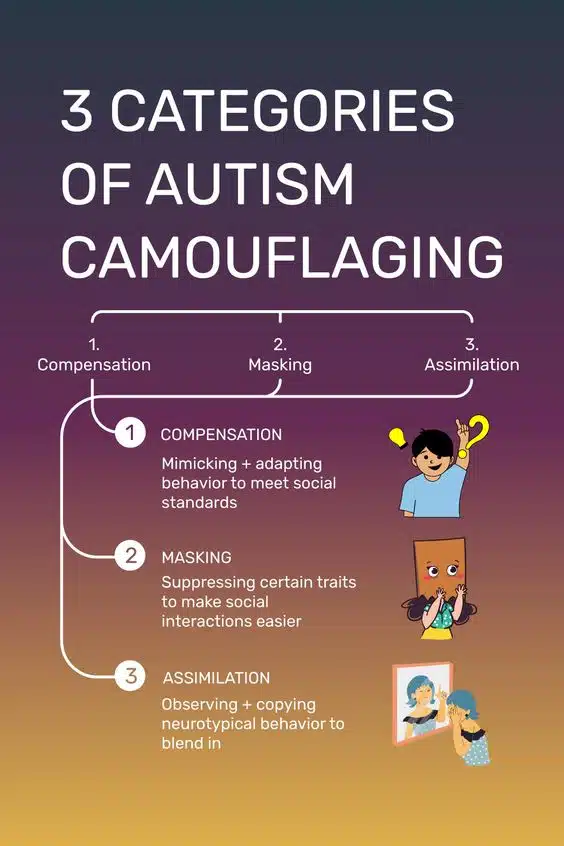Autistic burnout can be influenced by various conditions that intersect with autism. Understanding these conditions can help parents support their children better.
- Sensory Overload: Overwhelming sensory input, such as loud noises, bright lights, or strong smells, can contribute to autistic burnout.
- Social Demands: Navigating social interactions and adhering to societal norms can be mentally and emotionally draining for individuals with autism.
- Executive Functioning Challenges: Difficulties in areas like planning, organizing, and prioritizing tasks can add to the stress and exhaustion experienced during autistic burnout.
- Masking: The effort to camouflage autistic traits and fit into neurotypical expectations can lead to chronic fatigue and emotional strain.
- Co-occurring Mental Health Conditions: Conditions like anxiety, depression, and ADHD, which often coexist with autism, can exacerbate the symptoms of burnout.
By recognizing and accommodating the unique challenges they face, we can create a more inclusive and supportive environment that promotes their well-being. Goally, the versatile tablet, supports children with autism in developing essential skills. Its interactive apps, including digital schedules and gamified learning, aid in emotional regulation, executive functioning, and social skills.
This post was originally published on Feb. 5, 2023. It was updated on July 14, 2023.










